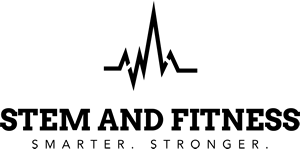Curriculum
- 1 Section
- 14 Lessons
- 18 Hours
Expand all sectionsCollapse all sections
- Curriculum14
- 1.1Lesson 1: Introduction to Muscle Science & Fitness5 Minutes
- 1.2Lesson 2: Fundamentals of Strength Training & Exercise Science10 Minutes
- 1.3Lesson 3: Designing an Effective Workout Plan4 Minutes
- 1.4Lesson 4: The Science of Strength Training10 Minutes
- 1.5Lesson 5: Functional Training & Movement Mechanics
- 1.6Lesson 6: Mobility & Flexibility for Optimal Performance7 Minutes
- 1.7Lesson 7: Core Strength & Stability9 Minutes
- 1.8Lesson 8: Recovery & Regeneration13 Minutes
- 1.9Lesson 9: Injury Prevention & Safety in Training6 Minutes
- 1.10Lesson 10: Nutrition for Performance & Recovery7 Minutes
- 1.12Lesson 11: The Mind-Body Connection in Fitness5 Minutes
- 1.13Lesson 12: The Role of Nutrition in Fitness5 Minutes
- 1.14Lesson 13: The Science of Recovery and Rest2 Minutes
- 1.15Lesson 14: The Science of Hydration in Fitness15 Minutes
Lesson 8: Recovery & Regeneration
Overview:
Recovery is just as important as training. This lesson covers how rest, sleep, nutrition, and active recovery contribute to performance and injury prevention.
Learning Objectives:
By the end of this lesson, you will:
- Understand the importance of recovery and regeneration.
- Learn different recovery techniques.
- Implement strategies to enhance muscle repair and prevent burnout.
Why Recovery Matters?
Recovery allows the body to heal, adapt, and grow stronger. Without it, training can lead to fatigue, overuse injuries, and decreased performance.
Key Components of Recovery:
- Sleep:
- Essential for muscle repair and cognitive function.
- Aim for 7–9 hours of quality sleep per night.
- Nutrition:
- Protein for muscle repair.
- Carbohydrates for replenishing energy stores.
- Hydration for cellular function.
- Active Recovery:
- Light exercises such as yoga, stretching, or walking.
- Helps improve circulation and reduce soreness.
- Rest Days & Deloading:
- Scheduled breaks to prevent burnout.
- Deload weeks involve reducing training intensity.
- Massage & Myofascial Release:
- Foam rolling, deep tissue massage, or percussion therapy.
- Helps release muscle tension and improve flexibility.
- Mental Recovery:
- Meditation, relaxation techniques, and stress management.
How to Optimize Recovery?
- Prioritize sleep and hydration.
- Incorporate mobility work.
- Listen to your body and adjust intensity.
Next Steps:
- Track your sleep and hydration for a week.
- Try foam rolling and mobility exercises.
- Implement a structured recovery plan.
